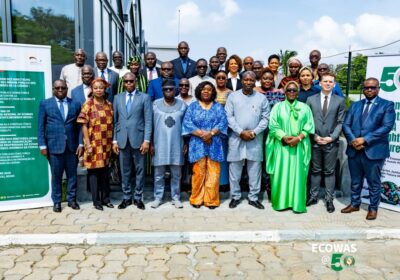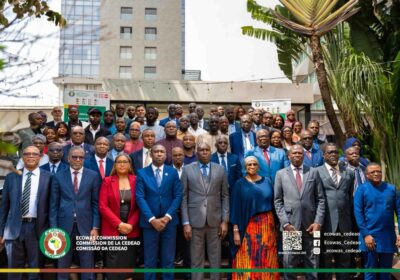Nigeria Strengthens Financial Confidence, As Federal Government Inaugurates NDIC Board to Safeguard Stability & Attract Investors.
By Raymond Enoch
In a decisive move to bolster investor confidence and fortify Nigeria’s financial architecture, the Federal Government has formally inaugurated a new Board of Directors for the Nigeria Deposit Insurance Corporation (NDIC). The ceremony, held in Abuja and overseen by the Finance Minister, heralds a renewed commitment to financial stability through enhanced oversight and strengthened depositor protection mechanisms.
As Nigeria navigates evolving financial landscapes—marked by corporate governance gaps, rising non‑performing loans, and the accelerating influence of fintech and blockchain technologies—this leadership transition comes at a strategic moment. The Finance Minister underscored the urgency for the Board to deliver policies and initiatives aligned with the National Development Plan (2021–2025) that safeguard systemic resilience.
Since 2012, NDIC has cultivated a close partnership with the judiciary to streamline the adjudication of failed bank cases. Under Acting MD Emily Osuji, this collaboration intensified in 2025 through sensitisation programs for judges of the National Industrial Court and members of the Investment & Securities Tribunal
These efforts aim to reduce legal delays that jeopardize asset recovery and undermine depositor confidence.
Legal experts have voiced strong support. Senior Advocate Ahmed Raji highlighted the need to fast-track dispute resolution to prevent investor flight, especially from abroad
Meanwhile, Federal High Court judges urged deeper judicial comprehension of emerging risks posed by fintech, cryptocurrency and cybercrime, emphasising that judicial adaptability is vital to preserving Nigeria’s financial stability.
Tackling Fraud and Cyber Threats Through Inter‑Agency Synergy
Further reinforcing this renewed mandate, NDIC’s Acting MD Osuji detailed the Corporation’s partnership with law enforcement agencies in Lagos. The initiative focuses on enforcing accountability in financial malpractices, with ongoing investigations and court cases involving insider abuse, cyber fraud, money laundering, and terrorism financing. According to Osuji, inter-agency collaboration is crucial for maintaining a secure banking ecosystem.
NDIC continues to support the Central Bank’s recapitalisation reform, which sets minimum capital thresholds of ₦500 billion for commercial banks—steering the sector toward stronger balance sheets and a projected $1 trillion GDP by 2026
Complementarily, the NDIC-supported Senate-supported increase in deposit insurance coverage—lifting the capped amount from ₦500,000 to ₦5 million—expands protection to nearly 99% of depositors, reinforcing public trust in the system.
With a diverse Board of Directors drawn from all six geopolitical zones and enriched by executive experience, the newly inaugurated NDIC leadership is well-positioned to tackle systemic fragilities. The combined strategy of legal partnership, operational reform, and legislative engagement signals a comprehensive approach to reinforcing Nigeria’s financial safety net.
As these directors assume responsibility, the spotlight now shifts to their ability to implement reforms that enhance governance, mitigate distress, and protect depositors—all essential levers for preserving investor confidence and sustaining economic growth.
Key Themes at a Glance
Theme Strategic Impact
New NDIC Board Strengthens governance, risk oversight, national reach
Judiciary collaboration Expedites liquidation, preserves depositor priority
Inter-agency investigations Curtails fraud, cyber threats, insider abuses
Recapitalisation & deposit insurance Bolsters bank capitalization and depositor trust
With these developments, Nigeria is reinforcing its financial backbone and sending a strong signal to domestic and global investors: its institutions are evolving—and resilient.








